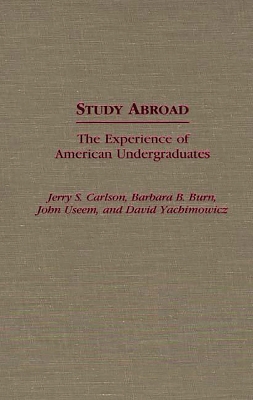Contributions to the Study of Education
1 total work
While it is assumed that American undergraduates who study abroad derive unique benefits from the experience, until now its actual impact has not been assessed. This book, which presents the findings of a long-term evaluation project, provides the kind of systematic and comprehensive data needed to document and give future guidance to programs of study abroad. Using comparative measures, the authors examine the effects of overseas study in terms of education, career, personal satisfaction, and cultural values.
Undergraduates in four U.S. college and university programs involving nearly thirty European institutions were chosen for the study. The focus of the research is the role of study abroad in students' acquisition of foreign language proficiency, knowledge of and concern for foreign cultures and international issues, attitudes toward their home country and its values, and career objectives and accomplishments. Student profiles indicate consistent patterns in motivation, achievement, and satisfaction that relate to the experience abroad. In their conclusion, the authors look at the implications of their findings in the context of our times and society and offer suggestions for some new directions for study abroad in the coming years. This analysis will be relevant for educational decision-makers, funding organizations, government, and the research community.
